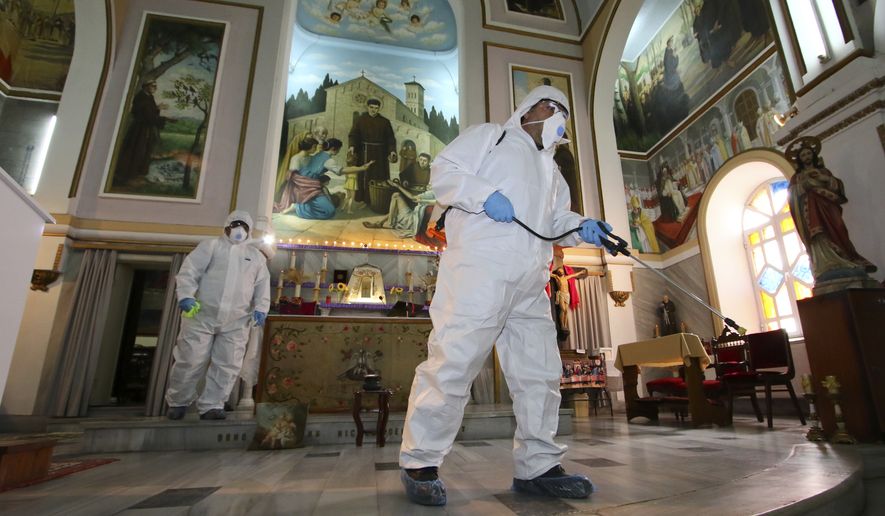OPINION:
The global pandemic that is the novel coronavirus has shattered two of the country’s most important institutions.
One is our American civil religion. The republic itself is threatened by the decision of congressional leaders to close Congress to the public until at least April 1.
This may have been the responsible thing to do given that one inhabitant of Capitol Hill, a staffer in the office of Washington Sen. Maria Cantwell, tested positive for the virus also known as COVID-19. Additionally, there was the real risk of community spread after at least five representatives and senators were potentially exposed during the recent Conservative Political Action Conference.
Closing Congress to the public — appropriate from the standpoint of public health — is deeply troubling, if only because of the symbolism.
After all, Congress is supposed to represent the people. The House of Representatives is quite literally the people’s house.
Extending the closure of Congress beyond the initial April 1 date will become automatic if, as most public health experts expect, the pandemic worsens. Yet, both the Senate and House of Representatives will continue to sit. Just how can the American people actually make their voices heard when the political class has separated itself from the plebs it is supposed to represent?
Yes, many representatives and senators will insist their offices are open remotely, but this is no substitute for direct public access.
The other institution deeply impacted by the coronavirus are the religious communities of Americans.
Earlier this week, bishops from the Episcopal Church in the District of Columbia and Virginia canceled worship at every church in their respective dioceses. This included the landmark Cathedral Church of St. Peter and St. Paul, as Washington National Cathedral is formally called.
As with the action of congressional leaders, this may have been the responsible thing to do as hundreds, if not thousands, of the faithful were advised by public health authorities to self-quarantine for 14 days after several Episcopal parsons, including the rector at Christ Church in Georgetown, tested positive. However, it raises important questions of theology and even faith.
Leaders of the Roman Catholic and Episcopal or Anglican churches, as well as other Christian traditions that emphasize the daily or weekly celebration of holy communion, had until now made slight changes to minimize the spreading of COVID-19 at holy communion through the distribution of bread and wine.
This included the suspension of serving chalices with consecrated wine to the laity at some churches — a hugely controversial move, given that Roman Catholics and Protestants literally killed each other over this issue during the tumult of the Reformation. Likewise, many Protestants outright reject private celebrations of holy communion, which creates theological issues when churches utilize technology to broadcast private services to the faithful.
Many of the faithful believe the bread and wine are transformed at holy communion into the body and blood of Jesus. Others reject that view but uphold that Jesus is fully present at holy communion through what is called the doctrine of the real presence.
This is critical because under either viewpoint it would be, as a matter of faith, impossible for the virus to spread through the bread and wine. To cancel church services, as the Episcopal bishops did, at best dampens and at worst undercuts the faith.
The actions of the temporal and spiritual institutions also put tremendous pressure on others to act in similar ways.
If Congress and churches are closed, then why are airports or shopping malls open? Undoubtedly, that is a question many are asking right now.
• Dennis Lennox is a political commentator and public affairs consultant. Follow @dennislennox on Twitter.




Please read our comment policy before commenting.